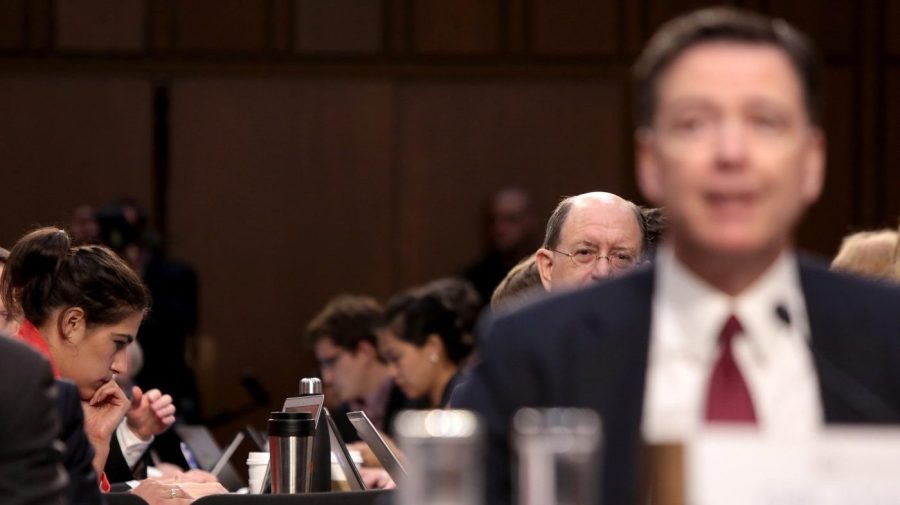
This is one in a series of op-eds celebrating The Hill’s 30th anniversary.
There are a few things all reporters remember about their careers: particular interviews, near-misses in the field and those supernatural moments when they were in exactly the right place at the right time for a big story.
I was a fresh-faced young reporter — green, but hungry — when Bob Cusack took a chance on hiring me to cover cybersecurity in 2015. In retrospect, this was perhaps a moment of insanity on Bob’s part. I knew very little about the arcane workings of Congress, and even less about cybersecurity, which was something of a backwater beat at the time.
But I got enormously lucky: During my first year on staff, the Democratic National Committee hack happened. The “Russia investigations” era had begun.
Suddenly, cybersecurity had not just an obvious intelligence nexus, but significance for national. I found myself on one of the hottest stories in Washington. Bob and Ian Swanson, the tireless managing editor of The Hill, gave me room to see it through, and I will be forever grateful for that. That story — that moment of being in the right place at the right time and the support I was given to stay there — changed the trajectory of my career.
It was also just plain fun. I spent more hours of my life than I care to count during that period sitting on the cold marble floor outside of the House and Senate Intelligence Committees’ classified spaces, writing under deadline and in volume — the very things that make a good reporter.
This was a second career for me. I had not gone to journalism school — rather, The Hill gave me the chance to live Russell Baker’s preferred form of education for aspiring reporters: “The ideal journalism school needs only one course. Students should be required to stand outside a closed door for six hours. Then the door would open, someone would put his head around the jamb and say, ‘No comment.’ The door would close again, and the students would be required to write 800 words against a deadline.”
That was about the size of it!
I got my first real scoop at The Hill: the nationality of a dual Saudi-American citizen held in military detention at the time. It was the kind of story about the wielding of American military power abroad that I had by then become desperate to write. The Hill gave me that chance, too.
I was also privileged to learn from some extremely skilled reporters and writers. Then and now, The Hill’s staff mostly work out of a windowless office space reserved for reporters in the bowels of the Capitol affectionately nicknamed “the cave.” It’s a long room with desk space and chairs bracketing both sides. In the front of the room sat Scott Wong, now at NBC, and The Hill’s senior leadership reporter, Mike Lillis.
I was the new kid, so I sat in the back. But I quickly realized that if I wanted to learn anything, I needed to sit in the front of the room so I could listen in while those two batted around how they were going to report out and construct a story. It was a peerless education — in lawmakers and in how to interpret their sometimes inexplicable behavior; in the history of every major policy fight on the floor; in the critical work of constructing questions to make news; and, most importantly, in writing with a sense of fairness and balance that doesn’t come at the expense of truth.
As it turned out, this was a smart decision in more ways than one. Mike and I got married in 2021, so I suppose I can say I found both a beat and a husband at The Hill.
I left The Hill in 2018 to cover the Pentagon for Defense One. I now cover intelligence for CNN. I often tell young reporters: don’t worry too much about planning your whole career. Just start reporting on whatever you can get a job covering. A story might happen that will suggest to you a path you had never even considered — and a good editor will let you run with it.
That’s what happened to me at The Hill. I am proud to have been a part of this scrappy, smart, tenacious team for a time.
Katie Bo Lillis covered cybersecurity and national security for The Hill from 2015 until 2018. She is now a senior reporter covering intelligence for CNN.

